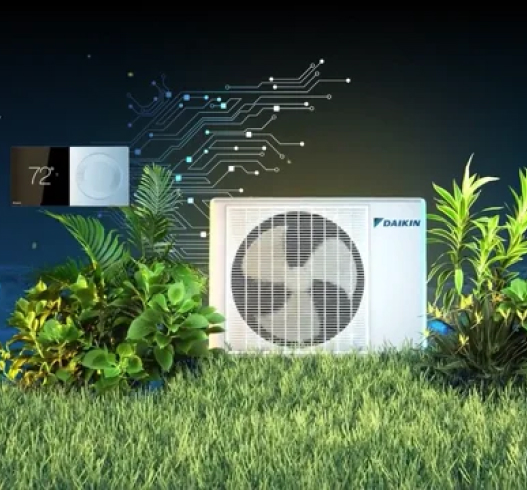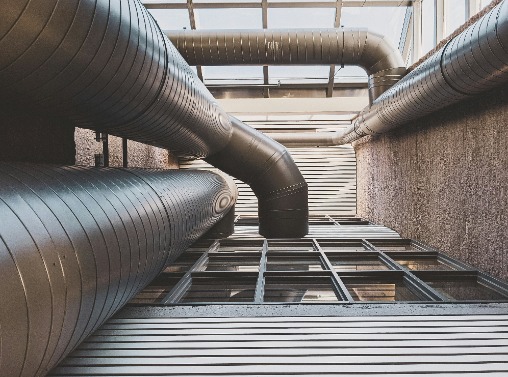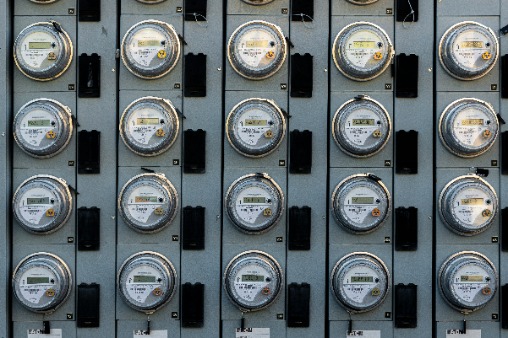Heating and Cooling your Garage

Adding a heating and cooling solution to your garage space can be a cost-effective way to unlock new indoor square footage.
Make your garage comfortable
A big challenge of a garage conversion is climate control. Garages are typically not insulated and don’t have the same airflow or ventilation as the inside of your home. This can lead to extreme temperatures in both the summer and winter, making the space uncomfortable and even unusable.
Find the right HVAC solution for your garage.
Adding insulation and caulking gaps are important steps for climate-controlling your garage space. But to combat sweaty summers and blustery winters, you need a professionally installed heating and cooling system.
Extending a Traditional Ducted System
Connecting ductwork from your existing ducted system to the garage.
Ductless Mini-Split System
A highly efficient, standalone solution providing heating and cooling without the need for ductwork.
Extending Central Ducted Systems
If your home already has a central ducted system, you may want to consider adding ductwork to connect your garage space. However, several challenges should be considered.
Ducted systems offer several advantages if ducts are extended to the garage. This option would provide consistent temperature control throughout the house and the garage. Extending ductwork in homes with brick, stone, or concrete walls may be challenging. In addition, your contractor should make you aware if the added cooling or heating demand of the additional square footage could strain the capacity and efficiency of the existing unit.
Ductless Mini-Split Systems
Ductless systems provide powerful, efficient heating and cooling without the need for ductwork, making them perfect for spaces like garages.
Pros
No Ductwork
Zoned climate control
Energy efficiency
Quick installation
Quiet operation
All electric heat & cooling
Flexible placement
Cons
Upfront cost to be compared with other alternatives
Need outside space to add the outdoor unit
Ductless mini-split systems are an excellent option for garage conversions due to their flexibility and efficiency. One of the major advantages is that they don't require existing ductwork, making them ideal for standalone spaces like garages. Without the need for invasive duct installation, you'll save on costs and avoid the disruption of construction.
These systems are highly energy-efficient, especially models with inverter technology, delivering precise temperature regulation and keeping energy bills low. Installation is quick and straightforward, often completed in a single day, and their quiet operation makes them perfect for home offices, studios, or guest rooms.
Ductless systems provide both heating and cooling, ensuring the garage is usable year-round, regardless of temperature. Their flexible placement allows for discreet wall mounting that doesn't take up valuable floor space while evenly distributing airflow.
These systems have a higher upfront cost compared to window units, although their energy efficiency can offset this over time. Additionally, the system requires an outdoor compressor unit, that although can be smaller and quieter than those used in many large, traditional HVAC systems, still needs space and proper placement consideration.

Energy-efficient comfort without the need for ductwork is possible. A ductless mini-split’s quiet operation and ability to provide both heating and cooling can help ensure year-round comfort in a standalone space—making these systems a good match for a garage conversion.
Garage conversions can be a great way to add value, functionality, and comfort to your home. But without the right HVAC solution, your dream space could quickly become a comfort nightmare.
Daikin solutions for garage conversions
Garage conversions can be a great way to add value, functionality, and comfort to your home. But without the right HVAC solution, your dream space could quickly become a comfort nightmare.
Factors that Affect Mini-Split Selection
Choosing the right mini-split system isn’t guesswork—it’s about precision. That’s why it’s essential to work with a professional, such as a Daikin Pro. They’ll perform an exact load calculation to determine the perfect size for your system, recommend the best spot for installation, and help you choose the type of system that fits your needs.
Why These Details Matter
Climate – Hot summers? You’ll need more cooling power. Chilly winters? Heating capacity becomes the priority. Your Daikin Pro will make sure your system is designed for your local conditions.
• Hot climates require a ductless mini-split system with higher BTU ratings for cooling.
• Cold climates require a higher heating capacity for a ductless mini-split system to maintain warmth in the winter.
Heat Sources – Sun streaming through windows, running power tools, or operating machinery all add extra heat to your space. A woodworking hobby creates different heating needs than a full-time workshop or a home yoga studio.
Insulation – The better your garage is insulated, the less heating or cooling power, measured in BTUs, is needed to stay comfortable.
• An insulation check is a crucial step in maintaining optimal temperatures and indoor comfort during your garage renovation. A local Daikin Pro can assess the insulation for your garage walls, attic space, and garage door.
• Seal air leaks – Gaps around windows, doors, and vents can let outside air in and inside comfort out. Seal air leaks with caulking and weatherstripping.
• Install radiant barriers – Reflective coatings to windows and radiant barriers can help reduce the amount of heat absorbed or lost by your garage.
With expert guidance, you’ll get a system that’s sized right, runs efficiently, and keeps you comfortable year-round.

It's time to kick out the car—and level-up your garage.
Make your garage the coziest part of your home with a Daikin ductless system.
In this article
Connect on Social Media
 Follow on Facebook
Follow on Facebook
 Follow on YouTube
Follow on YouTube
 Follow on Instagram
Follow on Instagram
 Follow on X
Follow on X
 Follow on TikTok
Follow on TikTok
 Follow on Pinterest
Follow on Pinterest

Looking for help now?
Enter your zip code to search for Daikin Contractors in your area.
Learn More
Learning Center Content
Stay informed about home comfort technology, when to upgrade, energy efficiency, and reducing your energy bills.





























